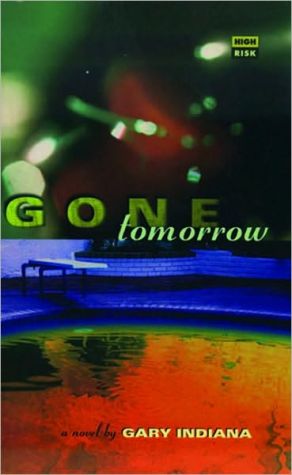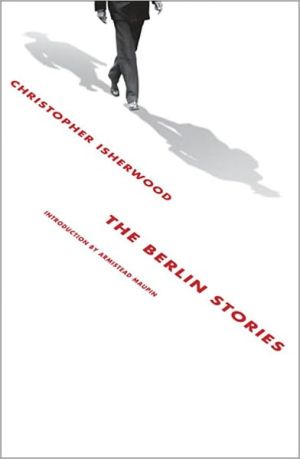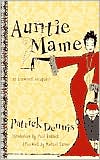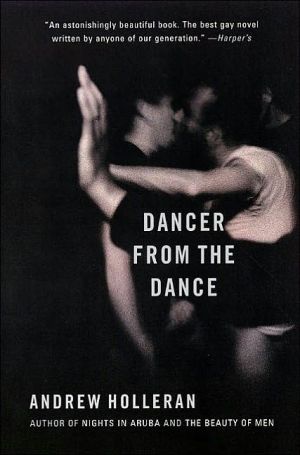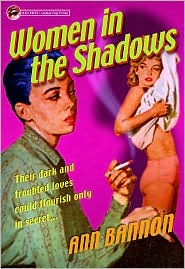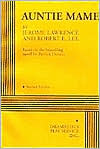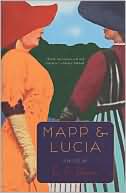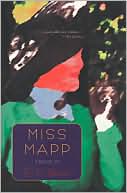Gone Tomorrow
A coolly passionate, fiercely immediate chronicle of a death foretold before the full onslaught of AIDS, Gone Tomorrow is a dangerous and unsettling work of fiction. A brilliantly evocative first-person narrative of decadence by a jaded, disfigured young actor, this novel will inspire admiration for the valiance of its achievement, and provoke controversy for the unflinching honesty of its sensibility. It is 1984, amidst the rot and corruption of Colombia, where a serial killer is on the...
Search in google:
A coolly passionate, fiercely immediate chronicle of a death foretold before the full onslaught of AIDS, Gone Tomorrow is a dangerous and unsettling work of fiction. A brilliantly evocative first-person narrative of decadence by a jaded, disfigured young actor, this novel will inspire admiration for the valiance of its achievement, and provoke controversy for the unflinching honesty of its sensibility. It is 1984, amidst the rot and corruption of Colombia, where a serial killer is on the loose. Here, under the aegis of an at once seductive and monstrous film director ("dark, sardonic, and secretive"), an international troupe of actors and technical crew has convened to make a film of vast, if vague, ambition. With preternatural incisiveness and lyric intensity, the narrator dissects their obsessional, implosive relationships - fired by narcissism, sex, alcohol, and drugs - against an ominous backdrop of cultural dissolution, social anarchy, and political violence. By the author of the widely acclaimed Horse Crazy, Gone Tomorrow is a brave, apocalyptic, elegant novel about the final gasps and convulsions of hedonism in the 1980s.Publishers WeeklyNew York, Munich and Cartagena, Colombia are the scenes of reckless decadence and excess in the early dawn of the AIDS epidemic, as recounted in this ambitious, uneven chronicle of a charismatic gay filmmaker's final years. Two friends of the late Paul Grosvener meet in New York in 1991 and discuss, over cocktails and joints, circumstances that led to his somewhat mysterious death. The narrative flashes back seven years to Cartagena, where Paul is directing a movie. Surrounded by corruption and poverty, stultified by excessive heat, drugs, liquor and sex, a motley crew of ex-Nazis, native Colombians, cosmopolitan actors and ``cinema types''--narcissists and grotesques--butt heads as they struggle to bring Paul's obscure vision to the screen. The second part of the novel recounts Paul's lover's horrible death from AIDS, Paul's own contraction of the virus, and the intrigue of his suicide. Indiana ( Horse Crazy ) frustrates the reader with his inconsistent first-person narrative. Contemplating life in the face of death he presents keen insights both through symbolism and through overt discussion; but at times his prose becomes overburdened with ostentatious mixed metaphors and almost Chandleresque similes that create an incongruous, mocking tone. Reminding us that he is not omniscient, Indiana's narrator disrupts his own story with frequent asides. Still, this is an intelligent, evocative treatment of an all too timely and difficult subject. (Mar.)
\ Publishers Weekly\ - Publisher's Weekly\ New York, Munich and Cartagena, Colombia are the scenes of reckless decadence and excess in the early dawn of the AIDS epidemic, as recounted in this ambitious, uneven chronicle of a charismatic gay filmmaker's final years. Two friends of the late Paul Grosvener meet in New York in 1991 and discuss, over cocktails and joints, circumstances that led to his somewhat mysterious death. The narrative flashes back seven years to Cartagena, where Paul is directing a movie. Surrounded by corruption and poverty, stultified by excessive heat, drugs, liquor and sex, a motley crew of ex-Nazis, native Colombians, cosmopolitan actors and ``cinema types''--narcissists and grotesques--butt heads as they struggle to bring Paul's obscure vision to the screen. The second part of the novel recounts Paul's lover's horrible death from AIDS, Paul's own contraction of the virus, and the intrigue of his suicide. Indiana Horse Crazy frustrates the reader with his inconsistent first-person narrative. Contemplating life in the face of death he presents keen insights both through symbolism and through overt discussion; but at times his prose becomes overburdened with ostentatious mixed metaphors and almost Chandleresque similes that create an incongruous, mocking tone. Reminding us that he is not omniscient, Indiana's narrator disrupts his own story with frequent asides. Still, this is an intelligent, evocative treatment of an all too timely and difficult subject. Mar.\ \ \ \ \ Library JournalThe first half of Indiana's new book, told in flashback, relates the pre-AIDS drug- and sex-drenched 1984 location shoot, in a vividly detailed Colombia, of a movie being made by a bunch of self-indulgent Euro-trash filmmakers. As told by one of its actors, the book details, years later, the very messy death from AIDS of director Paul's lover and finally Paul's self-willed demise. If nothing else, Indiana is daring, both in the oddly forceful convention-breaking structure of the narrative and in the horrific excesses of his mostly unlikable characters. (The mostly homosexual sex, including a coupling in front of a crematory at present-day Dachau, is easily X-rated.) However, Indiana ( Horse Crazy , LJ 5/15/89) skillfully if brutally uses this deliberate tendency to pornography as an often-moving statement about the debased quality of our brain-dead culture and the raging nihilism of AIDS. This is not a pretty picture, but it's brave and it works, often powerfully.-- David Bartholomew, NYPL\ \
